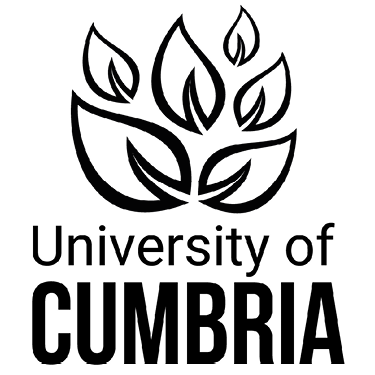Explore the fascinating world of wildlife conservation focusing on the protection of species, habitats, and ecosystems both in the UK and globally. Engage in critical discussions on ethical issues and the role of modern zoos in conservation efforts. Kirkley Hall’s zoo provides a unique opportunity to engage with real-world conservation initiatives, including captive breeding programmes and species management.
Develop practical skills in measuring and preserving biodiversity, and gain a comprehensive understanding of the challenges faced in conservation biology. Benefit from hands-on experience through participation in in-situ conservation projects, enhancing your readiness for a fulfilling career dedicated to safeguarding our planet's natural heritage.
You will need 48 UCAS points. GCSEs in English, Maths and a Science at grade 4/C or above. Along with a satisfactory reference. If you don’t meet traditional entry requirements, ‘non-traditional’ route can be offered if you have sufficient experience.
Here’s how to apply depending on your plans:
• If you’re applying to multiple Higher Education providers, submit your application through the Universities and Colleges Admissions Service (UCAS) by the specified deadline for the relevant recruitment cycle. This ensures your application reaches all your chosen institutions efficiently.
• If this College is your only choice, you can begin the process by selecting the “Apply” button at the top of this course page, which will take you to the online application form for a simple and direct experience.
• For detailed information on UCAS applications and deadlines, https://www.ucas.com/applying .
| Study level | Cost | Additional fees |
|---|---|---|
| HE | Please enquire | Course Fee: £6,355.00 *Please note that all fees are subject to change and will be confirmed upon enrolment.* Further information about financial support can be found on our page here: https://northumberland.ac.uk/experience/financial-support/higher-education-financial-support/ The following course-related costs are included in the fees: - Annual £10 printing allowance - Loan of technical and field equipment required for modules and laboratory coat The following course-related costs are not included in the fees: - PPE (e.g. overalls and working boots to work on the zoo specific requirements will be communicated before enrolment) - Day trips (e.g. to nature reserves, zoos) may incur a small entry fee which will be communicated in good time - Laptop/computer - all submitted work must be word processed - Stationary for note taking. |
Students are assessed in a variety of ways to develop graduate level skills. Assessment methods include scientific reports, essays, reflective reports, written examinations, practical examinations, portfolios and individual and group presentations.
GCSEs at 4/C or above or equivalent in Maths and English are required for this course.
As part of the course, you will undertake 150 hours of work experience in a vocationally relevant external placement(s), which you can choose for yourself.
You will have access to gain hands-on experience at Northubmberland College Zoo, as well as the working farm, equine yard and dog groomers on site at our Kirkley Hall campus.
We also have close links with a range of land-based organisations, such as Tynemouth Aquarium, Pets Corner in Jesmond, wildlife rehabilitators and government officers.
In addition to attending lectures, you will need to spend an extra 10-15 hours per week on independent study, which will include completing recommended reading, assessment preparation and conducting research for your dissertation.
This programme is designed to equip students with the knowledge and ability needed to work within the rapidly expanding wildlife conservation sector.
Year one is designed to develop the essential knowledge, academic and practical skills needed to study and pursue work across the animal management and wildlife conservation sectors. As such, modules that form the first year of the Wildlife Conservation course are also those that form the first year of the Foundation Degree in Animal Welfare and Management. This has the advantage of permitting a switch of programmes after successful completion of year one, should students develop a strong interest in the animal welfare sector during this time and wish to pursue modules more suited to their change in interests.
As the FdSc Wildlife Conservation programme specialises more in year two, students will learn the fundamentals of conservation theory, and how to apply this knowledge in both a natural and zoo setting. Here, students will undertake a practical projects to put their knowledge and skills into practice.
Ultimately, the course is geared towards developing the knowledge and essential practical and transferable skills that we know employers in our sector value. Academic skills development modules run over both years to develop research, academic communication, information technology, project management and critical evaluation skills. Students are introduced to entrepreneurship: a business skills module run in the second year provides practical experience of event management and commercial enterprise, to give graduates a competitive edge and broader career horizons should they wish to pursue self-employed work. Career prospects are enhanced further through a mandatory 150 hours’ work experience component, to be completed at a placement(s) of the student’s choosing and at times to suit the individual and placement provider.
Modules:
Year 1 -
- Introduction to Academic Skills
- Pre-Industry Skills
- Mammalian Anatomy, Physiology and Nutrition
- Animal Health and Management
- Principles of Biodiversity
- Evolution and Genetics
Year 2 -
- Industrial Experience
- Research Methods
- Event Management
- Zoo Conservation
- Wildlife Ecology and Behaviour
- Wildlife Conservation
Upon completing this course, students have a wide range of opportunities in both employment and further study. Career paths include roles with animal charities, NGOs, sanctuaries, zoos, wildlife parks, laboratories, or self-employment in areas like pet care and sales. Alternatively, students can progress to a BSc (Hons) degree or postgraduate study in related fields. Recent graduates have pursued careers in education, ecotourism, and conservation. Salaries vary significantly depending on the chosen role; for detailed insights, visit the Prospects website for guidance on jobs working with animals and their potential earnings.
This is a Higher Education course awarded by the University of Cumbria.
Visit the University of Cumbria website here.

Find out everything you need to know about Northumberland College and our exciting range of courses!
Register for our next open event


Rated Outstanding in all areas by Ofsted
2024

Top land-based college in the North East

100% pass rate for equine management and floristry courses

Our extensive re-development programme will create outstanding new facilities